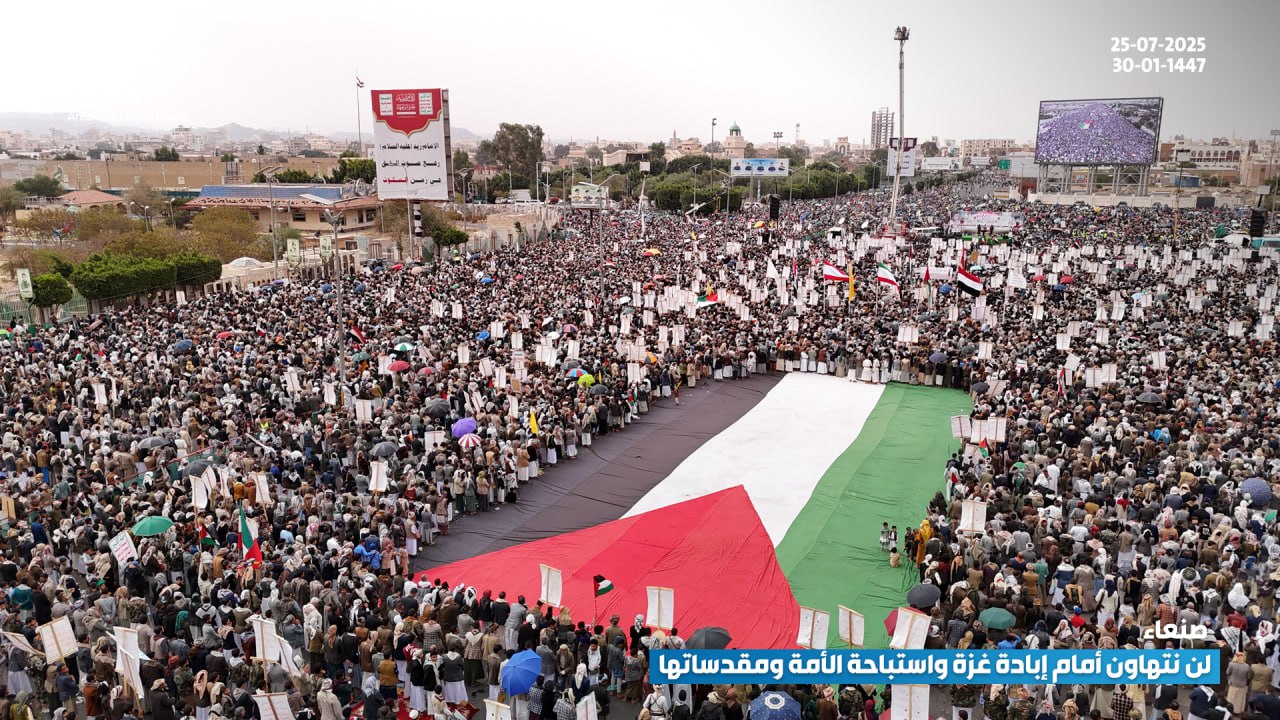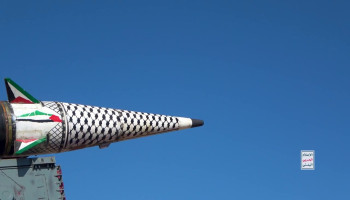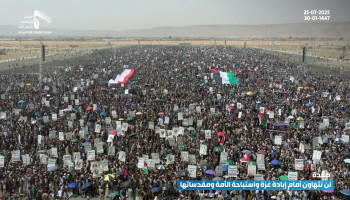In a significant shift in its strategic priorities, Israel has reportedly finalized a wide-scale offensive plan against Yemen’s Ansar Allah movement.
According to Israel’s Channel 14, the country’s security establishment—including the military and intelligence services—is operating around the clock, awaiting political authorization to launch the operation.
The report cited a high-level security assessment led by Defense Minister Yoav Gallant, who identified Gaza and Yemen as the two most volatile fronts at present, in contrast to relative calm in Lebanon and Syria.
Israeli intelligence reportedly believes that Yemen is no longer a peripheral arena, as it was over the past two years—during which the United States took the lead in targeting the country on Israel’s behalf. Now, Yemen has emerged as a central focus of Israeli defense planning.
Channel 14 quoted Israeli officials as saying that Tel Aviv “knows how to replicate what it did in Iran in just 12 minutes—and can do the same in Yemen,” referring to Israel’s recent surprise airstrike on Iranian military sites that resulted in the assassination of several high-ranking Iranian commanders.
This escalating posture comes as Israel’s strategic Red Sea port of Eilat—its only maritime gateway to the south—remains effectively shut down following a series of missile and drone attacks by Ansar Allah targeting ships en route to Israeli ports. These attacks have prompted major shipping companies to scale back operations to Israel, driving up maritime insurance costs and placing additional pressure on the Israeli economy.
Israeli officials are increasingly concerned that continued disruption may lead to an undeclared understanding between Washington and Sanaa regarding a ceasefire—an outcome Tel Aviv views as highly problematic.
Such an arrangement, they argue, could solidify a new strategic reality in which Ansar Allah emerges as a dominant naval actor, projecting its influence from the Bab al-Mandab Strait up to the Suez Canal—posing a threat not only to Israeli national security, but also to regional and global maritime stability.
Tel Aviv Seeks to Replicate “12-Minute” Iran Operation in Yemen
Israel’s concerns over Yemen are not new. Since October 2023, it has reportedly carried out around six airstrikes on Yemeni territory, targeting what it claimed were logistical and operational facilities linked to Ansar Allah. However, much like Washington’s earlier attempts, Tel Aviv has failed to achieve any “operational breakthrough.”
Western military and intelligence reports indicate that Ansar Allah has successfully rebuilt its military infrastructure underground. The group is said to have constructed an expansive network of tunnels stretching for tens of kilometers—equipped with electric elevators, smart ventilation systems, independent generators, and heavily fortified command centers and missile storage facilities, all designed to withstand aerial bombardment.
Even during the U.S. military’s intensified campaign in the Red Sea in early 2024, American forces were unable to dismantle this infrastructure or halt Ansar Allah’s aerial and naval attacks.
In parallel with military threats, Hebrew media reports indicate that Israel has redirected some of its satellites to focus on Yemen. Intelligence efforts have reportedly been launched to intercept phone communication signals from towers inside Ansar Allah-controlled areas—part of an effort to map out and disrupt the group’s command-and-control structure. Israeli security services are reportedly leveraging experience gained from past conflicts in Lebanon and Iran to guide these efforts.
Despite the accelerating military preparations, Israeli officials seem acutely aware of the complexities of the Yemeni theater. Yemen’s rugged geography, its distance from Israeli borders, and the cautionary experiences of Saudi Arabia and the United States all serve as major deterrents. A full-scale war of attrition—like the ongoing campaign in Gaza or previous strikes in Iran—appears unlikely. Even limited airstrikes face serious challenges due to the highly fortified nature of key targets.
Analysts suggest that Israel may be leaning toward a strategy of “smart strikes”: highly targeted, symbolically powerful operations aimed at high-profile figures or politically sensitive sites. These would be accompanied by heavy media coverage intended to create a perception of deterrence and boost Israeli public morale—without dragging Israel into a prolonged and costly conflict in a remote arena.
Ultimately, Israel finds itself facing a strategic dilemma. On one hand, it faces mounting pressure to secure maritime navigation and contain Ansar Allah’s growing influence in the Red Sea. On the other hand, it recognizes that Yemen is not a battlefield that lends itself to rapid military resolution. As such, the Israeli security establishment appears to be oscillating between “calibrated messaging” and “symbolic strikes,” in an effort to contain the threat without triggering a new war of attrition.
Luqman Abdullah | Al-Akhbar Lebanon







